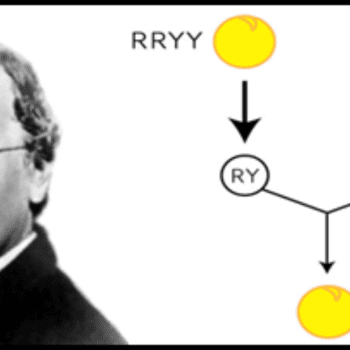
This paper, the final of three essays on Christian apologetics, shifts the focus to presuppositional apologetics, a unique approach that sets it apart from classical and evidential apologetics.
As previously stated, apologetics seeks to explain and justify religious doctrine. It shows the reasonableness of faith and doctrine in the face of the objections offered by atheists and non-Christians.
I will begin by reviewing the history of presuppositional apologetics and its proponents. Finally, I will examine the method used by this particular form of apologetics.
Presuppositionalism Is Born
Presuppositional apologetics dates back to the 1920s, with roots in the reformed-Protestant tradition. The Dutch theologian Cornelius Van Til is generally credited with developing the method.
Why is it called presuppositional? Van Til writes, “The Christian presupposes the existence of the triune God and his redemptive plan for the universe as set forth in Scripture… ‘The only proof of the Christian position is that unless its truth is presupposed, there is no possibility of proving anything at all.”
The Transcendental Argument
A follower of Van Til, Dr. Greg Bahnsen built on Van Til’s views, formulating the transcendental argument for the existence of God. It is formulated negatively but is the argument most associated with presuppositional apologetics. That is to say that presuppositional apologetics seek to prove the validity of their position by showing that the contrary position is false. This is done by showing that three critical aspects of the human experience, Logic, Morality, and Science, presuppose and are reliant upon God.
Logic is the study of human reasoning – providing formulas for proper reasoning. The foundation of logic is found in its three laws: the law of identity (a thing is what it is), the law of non-contradiction (a property cannot both belong and not belong to the same subject. For example, a cat cannot both be a cat and not be a cat), and the law of excluded middle (if a proposition is true, its negation must be false. For example, if it is true that the weather is hot, it must be false that the weather is cold. There can be no third option). These three laws, along with tautologies, provide the foundation for human logic and reasoning.
The presuppositional approach will point out that human beings discover these laws; we do not create them. If logic is not created by us, then by whom? The Christian presuppositionalism will argue that it exists in God’s mind and is made knowable to us by way of natural law. Therefore, it follows that the laws of reasoning are objective.
It should be observed that presuppositionalism understands that human reasoning is contextual. Whatever we think about will be filtered through our previously held assumptions or presuppositions.
Morality, too, must be objective to be intelligible. The alternative, subjective morality, is nothing more than an opinion. If objective morality did not exist, judgments of right and wrong would vary widely between individuals and groups. It would be impossible to create a rule of law in societies and in and among nations.
Science, as well, must be entirely reliant upon the existence of God. The laws of physics are descriptive. They create nothing; rather, they simply are our attempts at understanding the universe. Moreover, science presupposes intelligibility and uniformity in the universe. It is the predictability of the universe that makes scientific laws possible.
The Only Way To Make Sense Of The World
Presuppositional apologetics extends this philosophy to the epistemological and moral order, as well. Put simply, in the absence of God and a Christian worldview, trusting in one’s reasoning or the existence of an objective moral order is incoherent. After all, from an atheistic standpoint, human beings are products of biology, driven by an undirected evolutionary process. There is no reason to trust in the mental machinations of such a being. Ultimately, the non-believer must appropriate a theistic philosophy for himself to avoid a state of subjectivity, irrationalism, and moral anarchy.
Moreover, presuppositional apologetics argues that the non-believer’s worldview contains several contradictions that cannot be accounted for. For example, the atheist may make moral judgments but deny the existence of moral absolutes. Where the Christian framework provides for rationality, logic, uniformity of nature, morality, and science, the atheistic philosophy (to the extent that it can be called such) cannot.
Some Problems
Nevertheless, there are several problems with presuppositional apologetics. First, it appears to engage in circular reasoning, assuming the existence of God as axiomatic. Furthermore, while Christianity provides a framework that makes sense of the world, other worldviews are able to offer intelligible accounts, even though they explain less. Lastly, because presuppositional apologetics’s arguments are formulated negatively, they can lack persuasive power.
Conclusion
In summary, the presuppositional apologist engages in an internal critique of non-Christian worldviews in order to demonstrate that such positions are arbitrary, inconsistent, and lack the preconditions for epistemology. The presuppositional apologist can thus take a given position that the unbeliever holds and demonstrate to him that if his own worldview were true, that belief would be incoherent or meaningless (reductio ad absurdum). Presuppositional apologetics seeks to prove Christianity with reference to the impossibility of the contrary. In other words, unless the Christian worldview is presupposed – whether at a conscious or subconscious level – there is no possibility of proving anything.
















